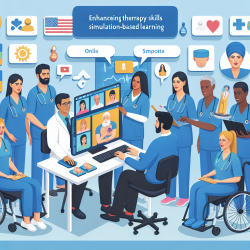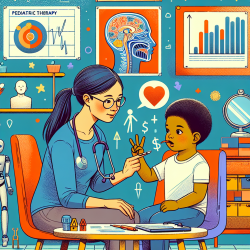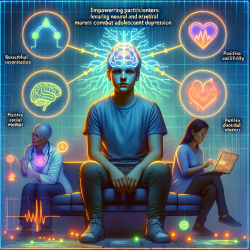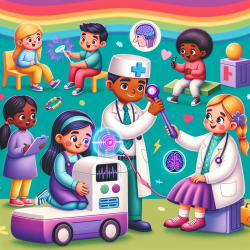In the rapidly evolving field of allied health, the ability to effectively transition from theoretical knowledge to practical skills is paramount. Recent research from Squires et al. (2021) has highlighted the transformative potential of Simulation-Based Learning Experiences (SBLEs) in professional placements. Here’s how you can leverage these insights to enhance your therapy skills and outcomes.
The Power of Simulation-Based Learning
SBLEs are structured activities that replicate clinical situations, offering a safe environment for students to practice and hone their skills. The study conducted by Squires and colleagues demonstrated that SBLEs can significantly improve:
- Confidence in clinical skills
- Communication abilities
- Critical thinking and reasoning
- Readiness for professional placements
Data-Driven Outcomes
Using Kirkpatrick's evaluation framework, the research categorized outcomes into four levels:
- Reaction: Students' satisfaction and emotional response to the training.
- Learning: Changes in knowledge, skills, and attitudes during the simulation.
- Behavior: Application of learned skills in clinical settings.
- Results: The overall impact on organizational performance.
Most studies reported improvements in levels 1 and 2, with students showing increased satisfaction and confidence. However, there is a need for further research to evaluate how these benefits translate to real-world clinical environments (levels 3 and 4).
Implementing SBLEs in Your Practice
To effectively integrate SBLEs into your professional practice, consider the following steps:
- Identify Key Skills: Focus on areas where students commonly struggle, such as communication and clinical reasoning.
- Design Realistic Scenarios: Use high-fidelity simulations that mimic real-world challenges.
- Provide Structured Feedback: Utilize formal debriefing sessions to reinforce learning and address gaps.
- Evaluate Outcomes: Regularly assess the impact of SBLEs on students' performance and confidence.
Encouraging Further Research
While the current evidence underscores the value of SBLEs, there is a critical need for more research, particularly in understanding how these simulations impact long-term clinical performance and organizational outcomes. Practitioners are encouraged to:
- Participate in research studies
- Share findings and best practices with the community
- Advocate for the inclusion of SBLEs in curricula
To read the original research paper, please follow this
Mapping Simulated-Based Learning Experiences Incorporated Into Professional Placements in Allied Health Programs.










